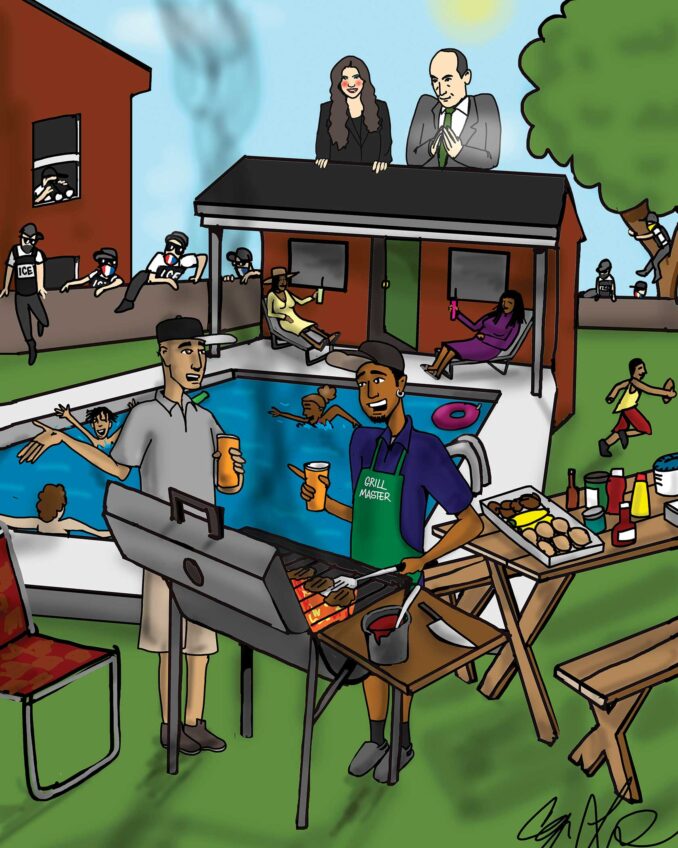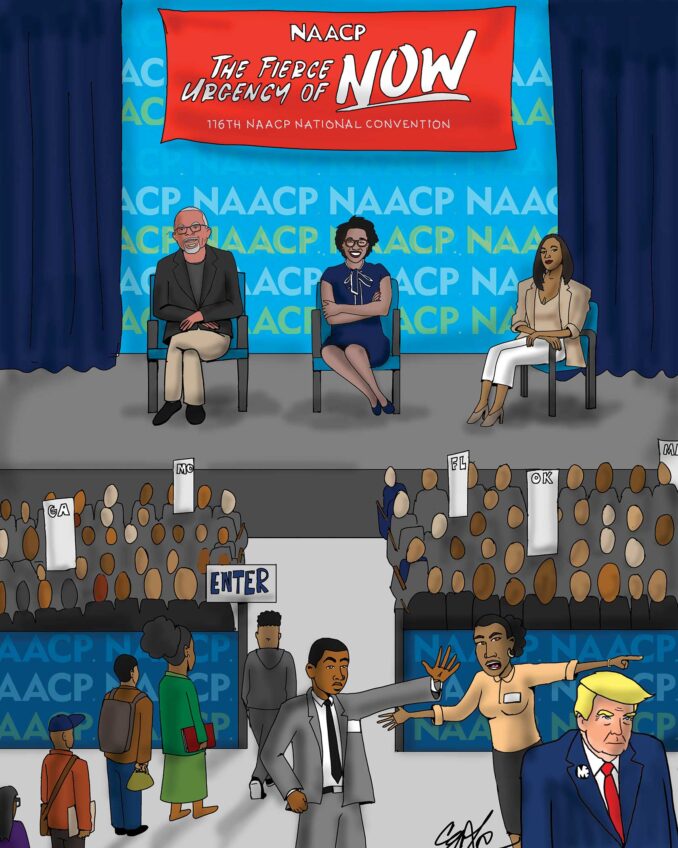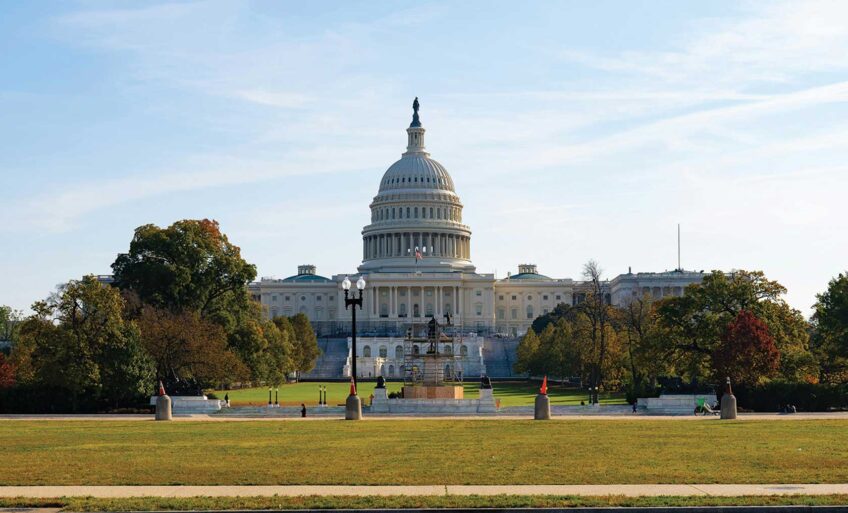They try to erase us. Again.
Erase the stories, the elders, the recipes handed down on index cards stained with soul. Erase the baby with thick curls chasing cousins through the grass. Erase the uncle who grills with one hand and carries history in the other. Erase the gospel laugh of an auntie who remembers when remembering was survival. Erase us.
And yet — every July, every hot August weekend, under tents and tall trees and skies heavy with sun, we gather.
Reunions teach us how to rebuild.
A Black family reunion is not just a picnic. It is a resistance. It is a political act dressed in matching T-shirts. It is a living archive with potato salad. It is where our future is fortified with laughter, collards, and truth. And in this particular American season — where Trump’s policies cast long, bitter shadows across our neighborhoods, and the machinery of forgetting speeds up — we need these reunions more than ever.
Because what’s being attacked is more than policy. It’s our presence.
This administration doesn’t come with burning crosses or snarling dogs — at least not always. It comes with budget cuts and book bans. It comes with Medicaid slashed and cultural programs gutted. It comes with voting rights stripped and DEI offices dismantled. It comes with the quiet violence of redistricting and the loud indifference to Black pain. It comes with a smile and a signature. It comes in the name of “freedom,” though freedom for whom remains the question echoing through every gutted school and shuttered clinic.
Trump can cut programs, but he can’t cut memory.
In that erasure, they hope we forget. That’s the trick. Forget who we are. Forget where we’ve been. Forget that we are more than statistics or soundbites. That we come from people who held on when there was nothing to hold but each other.
And that’s why we pull up folding chairs on the same plot of land where Big Mama used to plant tomatoes. That’s why we chant the roll call of ancestors before passing the corn on the cob. That’s why we tell our children stories they’ll one day tell theirs — about the cousin who marched, about the auntie who taught in a one-room schoolhouse, about the brother who built a business from nothing but grit and grace.
Black family reunions are memories made flesh. And in a time when textbooks dare to rename slavery as “involuntary relocation,” when history itself is put on trial, we have to be the living proof. We have to pass down more than heirlooms — we must pass down the fire.
Yes, we mourn. Yes, we rage. But we also gather.
Reunions remind us that we’re not alone. In the face of policies that divide and devastate, they are our stitching. They bind scattered families — Georgia to Detroit, Watts to Wilmington. They turn kinfolk into community and make space for grief to dance beside joy. They let the great-grandchild touch the hand of the oldest living relative and say, “I see you.” In a country trained to look away, we look at each other — fully, fiercely, and with love.
There’s resilience in that.
Resilience in the uncle who prays over the meal with a voice trembling from all he’s seen. In the cousin who brings flyers for her grassroots org. In the kids who line-dance, like freedom ain’t just a metaphor. In the laughter that cuts through the heat like a choir’s first note. These moments don’t make the news, but they make us.
Trump can cut programs, but he can’t cut memory. He can fire federal workers and roll back protections, but he can’t roll back the rhythm in our bones. He can threaten, scapegoat, and silence — but every reunion is a rebuttal. A sermon. A celebration. A sanctuary.
In the midst of environmental rollbacks that poison our air and neglect our neighborhoods, in the face of storms and floods that disproportionately strike our homes, reunions teach us how to rebuild. Not just homes, but hope. Not just families, but futures.
Yes, we mourn. Yes, we rage. But we also gather.
We remember not just what was taken — but what was never surrendered.
We revitalize — through music, hugs, photo albums, spades games that last until midnight, the smell of sweetgrass, the sight of brown hands held tight.
We resist the erasure with our very breath.
If you want to know how we survive — look here.
Not in press conferences. Not in polling places. But in the places where love and legacy collide.
Where we wear shirts with the faces of those long gone and speak their names like prayers.
Your gathering is sacred.
Where we remind each other: We come from people who made a way out of no way.
Where we don’t just survive — we multiply.
So, to every Black family planning a reunion this summer, know that your gathering is sacred. Know that your meal is a protest. That your playlist is policy. That your gathering under shade trees is the gathering of nations.
And to the architects of erasure — know this:
You will not silence us.
We are the reunion.
We are the remembering.
We are the resilience.
And we are not going anywhere.
Mustafa Ali is a poet and activist who writes for Word in Black.







Leave a Reply
You must be logged in to post a comment.